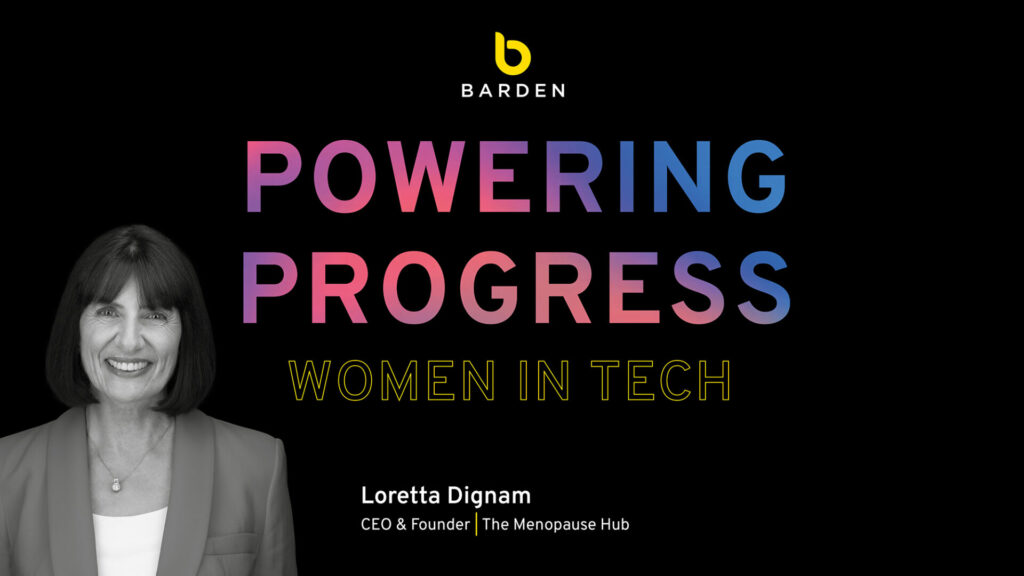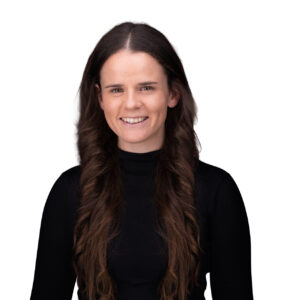Can you tell us about your background and what led you to start your business?
I spent over 25 years in the corporate sector, working in marketing, communications, and branding with large multinationals. Honestly, I never planned a career in menopause! It all started when I was 49, had my last period, and soon after, I began experiencing hot flushes. I knew almost nothing about menopause time, and I was actually shocked because I thought I was too young for it. I didn’t feel comfortable discussing it at work because I associated menopause with women much older than me and feared being dismissed or judged. However, after trying various natural remedies without success, I eventually started hormone replacement therapy and began to feel better. I realised that many other women were going through similar struggles, so I decided to talk to them and listen to their experiences. That’s when I decided to set up the Menopause Hub, Ireland’s first dedicated clinic, to offer support to women like myself. I wanted to focus on three core values: education, empathy, and empowerment.
You’ve expanded your work into the corporate world through EdTech. How did that come about, and what impact has it had so far?
I saw a huge need to support women in the workplace because our market research data told us that 10% of peri/menopausal women gave up work because of symptoms and 40% considered quitting their jobs. That’s a lot of female talent at risk for any employer! This led me to launch the Menopause Hub Academy. It’s an EdTech platform offering digital training, CPD-accredited courses, and live education sessions tailored for workplaces. For large companies, e-learning is a scalable way to provide support. The Academy also offers accreditation programs to recognise companies doing the right thing, for example, Lidl, Aldi, IRFU and Consilient Health. It’s about educating employers on the hidden costs of ignoring menopause, like absenteeism, reduced performance, and losing talented female employees.

Plus, with the planned changes in legislation around menopause discrimination laws in the UK, I believe Ireland won’t be far behind. Ultimately, we want to create workplaces where women don’t just survive – they thrive.
A study conducted last year across Europe found that only 10% of funding for technology businesses goes to female-founded or mixed-gender start-ups, with the percentage even lower for technology businesses solely founded by women. Did you face any challenges in securing funding for your venture?
I was well aware of the challenges female entrepreneurs face. To prepare, I joined networks and participated in two different programs over two years, Going for Growth and EY Winning Women Entrepreneurs Programme. These provided useful guidance on fundraising, shareholder agreements, networking, sales, and other business essentials. The EY Winning Women Programme gave me access to an incredible network of women globally.

Looking ahead, as we expand further, I will need to go through fundraising again on a much larger scale, which will involve bigger players and much more money. That might be a different experience.
Why do you think this funding gap exists?
I hear a lot from women in my networks about the challenges they face – being blanked in meetings, not being understood, or not being trusted to deliver. Women are often dismissed or interrogated more harshly than their male counterparts. It reminds me of recruitment, where people tend to hire in their own likeness. That’s why diversity and inclusion are so crucial. Investors often back businesses that reflect their values and experiences, and unfortunately, that bias can work against female entrepreneurs.
It’s frustrating that women are often held to higher standards. Why should it only be female investors who support female-led businesses? Male investors can and should invest — they usually have the lion’s share of the money.
What advice would you give to female entrepreneurs early in their careers who want to start businesses in the tech industry? Did you experience any challenges?
Just do it! There’s a book called Feel the Fear and Do It Anyway that I read years ago, and I highly recommend it – it’s fantastic. For me, serving on the board of the Abbey Theatre and chairing its Gender Equality Committee gave me the confidence to believe I could make a difference. In establishing the menopause Hub and the Academy, I had a clear, laser-focused vision, and I just kept pushing forward with my business.
That said, founding your own business can be lonely. I did it on my own, but if you can find someone who shares your vision and passion, I believe it can make things much easier. You can divide the workload, share the ups and downs, and balance each other out. It doesn’t necessarily have to be one partner, it could be two or three co-founders. Of course, there are challenges when people don’t agree, but I believe that the benefits far outweigh them.
I also often speak with male entrepreneurs, and they confidently talk in terms of millions, sometimes even billions. It made me ask myself, “Why am I not speaking like that?”

I believe women aren’t always great at acknowledging their achievements. People tell me, “You must be so proud of what you’ve done,” but I rarely sit back and think, “Aren’t I great?” I have received awards and recognition, but my mindset is always focused on what’s next, on the next goal.
My observations are that men are better at taking pride in their accomplishments, and for women, it’s different. That’s why being part of supportive networks is so important. They help you recognise and reflect on your achievements in a way that’s encouraging without being overly self-congratulatory.
What key lessons have you learned through your career?
People say, “Perfection is the enemy of the good” or “Perfection is the enemy of action”. If you want something to be perfect, it will never get done, and you’ll drive yourself mad in the process. My advice would be to aim for “good enough.” Not bad or sloppy, but good enough.
Another thing I have learned from the tech sector is the value of iteration. Tech companies are constantly rolling out updates, patches, and fixes. That approach taught me that you can always improve in the next iteration. It’s better to get your product or idea out there, get feedback, and gather validation – talk to customers, consumers, businesses, or users -because the things you think will work might not.

Others may want to support you, help you financially, or offer advice. There are also grants available through local enterprise offices, Enterprise Ireland, and the EU. I did a “Start Your Own Business” course, and it was brilliant.
I don’t have all the answers, even now! That’s why I rely on my team and stay open-minded. Collaboration and partnerships are invaluable. And remember: failure isn’t the end of the world. Fail fast. Many successful people have failed multiple times before getting it right.


 Jump Back
Jump Back

